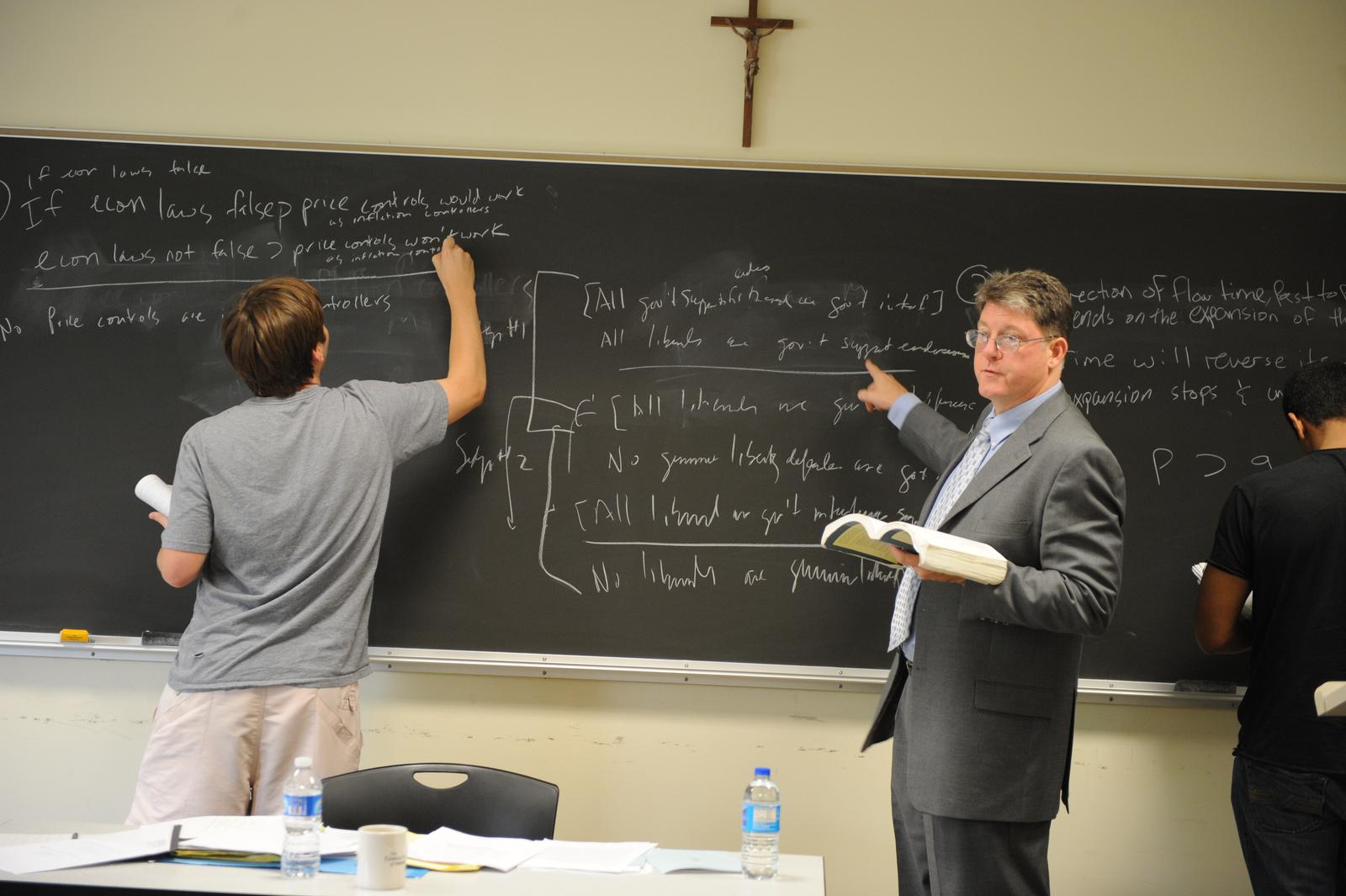Progress Made to Change Course Curriculum for the First Time in Years

By Duane Paul Murphy
The Catholic University of America is on the verge of major curriculum changes for the future incoming class of the 2018/2019 academic school year, which includes new concentrations and course requirements. Catholic students that are currently enrolled will not be affected and will continue to follow the current curriculum policies. This could become the biggest modification to the university’s overall core curriculum in more than 15 years since the introduction of the mandatory First Year Experience core curriculum for all attending freshman students.
On Thursday, October 19th, the university’s Academic Senate approved new changes to current academic policies and curriculum. These proposals were first passed by the university’s Undergraduate Board as well as the university’s General Education Curriculum Committee and recently the Academic Senate with a majority vote.
According to various documents obtained by The Tower, a wide variety of proposed changes will aim to achieve an “organic vision of reality” regarding core liberal arts curriculum based on inspiration from Ex Corde Ecclesiae, a 1990 apostolic constitution issued by Pope John Paul II that refines and defines the status as well as purpose of Catholic institutions of higher education all over the world. This particular encyclical emphasizes the holistic value of a liberal arts education in supporting one’s studies. One excerpt was highlighted to embody the vision with the new curriculum: “While each discipline is taught systematically and according to its own methods, interdisciplinary studies, assisted by a careful and thorough study of philosophy and theology, enable students to acquire an organic vision of reality and to develop a continuing desire for intellectual progress” (Ex Corde 20).
The new curriculum proposal lays out a set of required courses and concentrations for students depending on their major. Students obtaining professional degrees, must take the 10 foundational courses. Students taking non-professional degrees, such as Bachelors of Arts and of Sciences programs, must complete five additional courses with a total of 15 courses in addition to a required focus area. Students obtaining a professional degree will be going to take only two philosophy courses and two religion courses. Students obtaining a nonprofessional degrees will have to take only three theology courses and three philosophy courses. Newly added, all undergraduate students seeking either a professional or nonprofessional degree will be going to take a fine arts course as a requirement.
The proposed changes mandate that the students complete a focus area of study in addition to their major. The newly-established mandatory focus areas contain an assortment of concentrations within the university’s liberal arts, and completion of a focus area will result in a designation of the title, Cardinal Scholar. For those students who select the Liberal Studies Concentration, one elective course must be taken in each category such as philosophy, theology, mathematics, social sciences, and humanities. For those students who choose the Enduring Questions Concentration, a total of five elective courses must be taken across at least three categories in one thematic area, which include human condition, knowledge and wisdom, freedom and justice, the good life, and God. While students are going to be required to select a focus area along with their major, they will have a selection of alternative options to meet that specific requirement, which include a double major or dual degree, a disciplinary minor, a certificate, an honors track, and more.
Many currently enrolled students on campus, especially upperclassmen, have expressed positivity regarding proposed changes to the liberal arts curriculum.
“I value the liberal arts education I have received so far at CUA and definitely think that the theology and philosophy courses I have taken have provided me with a well-rounded education on faith and reason,” said junior politics major Katie Troilo. “However it would be nice to have more flexibility to take classes within my major interests.”
Other students have shown satisfaction with the minor reduction in theology and philosophy courses.
“I think it’s great. Especially for theology,” said senior business management major Jimmy Tomic. “We shouldn’t be forced to take theology if we aren’t religious, and philosophy isn’t for everyone. I do recommend a philosophy course because it causes us to have to think in a different light.”
The next step is final approval from the university’s Board of Trustees.







